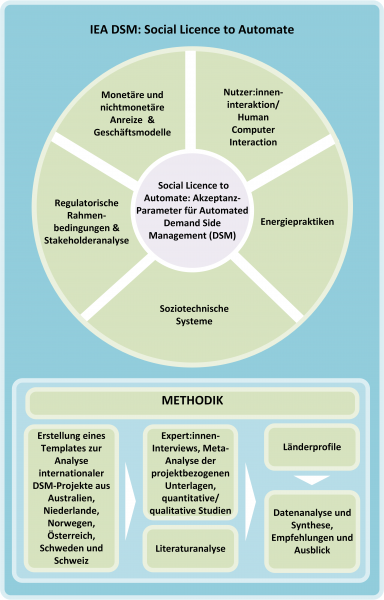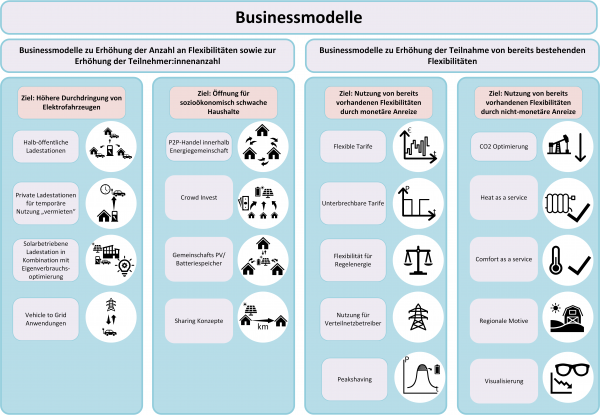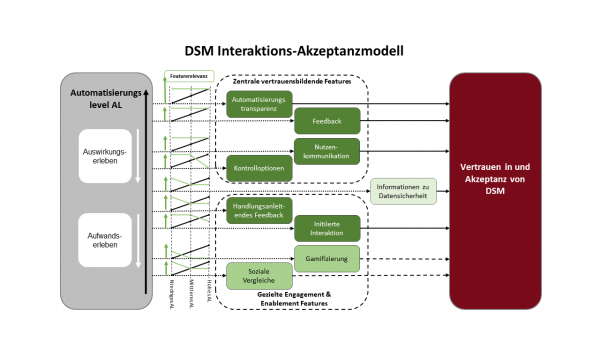IEA UsersTCP: Social License to Automate (working period 2019-2021)
Short Description
In the project, decisive factors in the areas of socio-technical systems, technology-based interaction design, energy practices, actor roles, business models and incentive systems were identified, analyzed and evaluated for their role in building of acceptance and trust. Involved stakeholders, technical parameters of automation, monetary and non-monetary incentives, interfaces provided for end customers and integrated interaction features, as well as existing flexibility potential were considered in detail. With the help of information from the various international projects, analyzes were carried out on various topics.
With regard to interaction-related acceptance factors, it can be summarized that the role of user interfaces of demand side management changes depending on the level of automation and the associated experience of impact and effort. If the automation level is low and the impact experience and the effort are high, the main tasks of interaction systems are to actively address participants, the provision of information that guides them, prompt feedback, as well as clear communication of benefits that corresponds to the required effort. As the level of automation increases, the task of getting users to act moves from a key phase of mediating control at a medium level of automation to a phase of accountability, transparency and justification through the communication of results at a high level of automation.
Concerning incentives for participation, the analysis showed that non-monetary incentives, such as the opportunity to make a contribution to climate change, play a major role in all research projects which have been examined. In almost all projects, it was also ensured that no financial disadvantage could arise through participation, which had a positive effect on the customer acquisition. The analysis of the business models shows possibilities how energy poverty can be avoided, and a higher penetration of automation technologies can be created. Additional research need could be identified, especially on the topic to integrate socio-economically weaker households, as well as on the technical side in the joint integration of grid-serving and electricity market-driven applications.
The supplementary results of the international project emphasize the importance of coordinating the communication of project purpose and success with end users motivations, the need for more attention to the role of intermediaries, better consideration of flexibility potential, and more integrated solutions that take into account the needs of all stakeholder groups involved.
Based on these results, the involvement of more diverse user groups, solutions for different flexibility profiles, engagement concepts based on effort requirements and the experience of its impact, represent important next steps in obtaining a social license to automate.
Project Images
Terms of use: The pictures listed underneath the header “Project Pictures” originate from the projects in the frame of the programmes City of Tomorrow, Building of Tomorrow and the IEA Research Cooperation. They may be used credited for non-commercial purposes under the Creative Commons License Attribution-NonCommercial (CC BY-NC).
Participants
Great Britain, Sweden, Switzerland, The Netherlands, United States
Contact Address
Tara Esterl, Lisa Diamond
AIT Austrian Institute of Technology
Giefinggasse 6, 1210 Wien
E-Mail: tara.esterl@ait.ac.at, lisa.diamond@ait.ac.at



